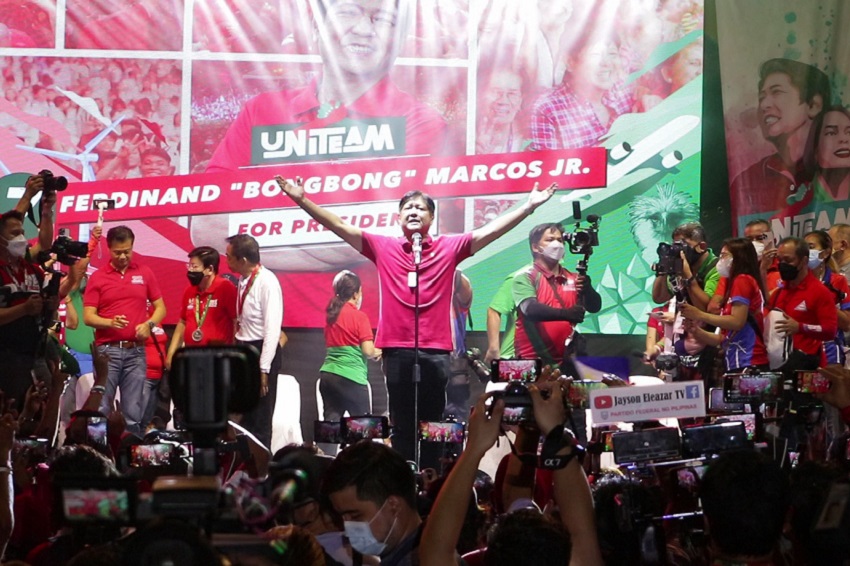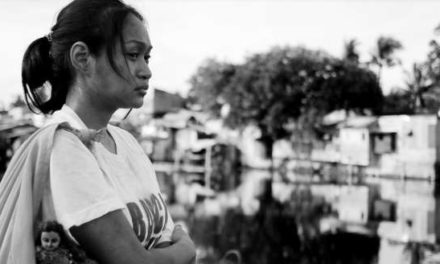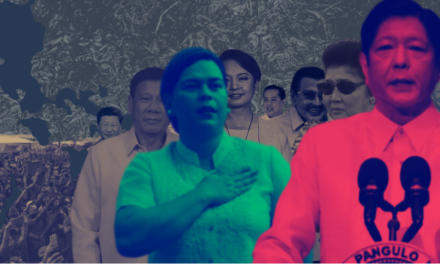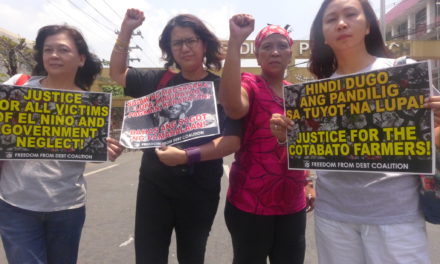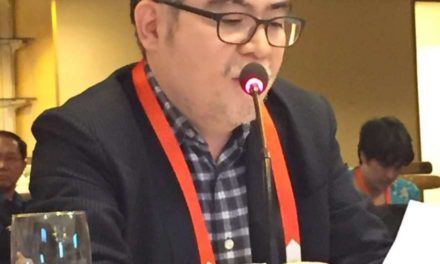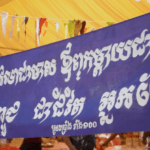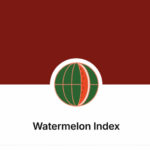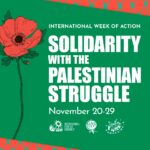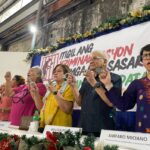On May the 4th 2022, five days before the presidential elections in the Philippines, CETRI had a conversation with four members of Focus on the Global South to better understand Rodrigo Duterte’s legacy and the stakes surrounding his succession. This article is the second of a two-parts series derived from this conversation.
CETRI: Looking at the stakes of these elections, the polls seems to indicate a probable win of the Marcos-Duterte ticket. If they do win, do you think they will mainly act in continuity of the last administration or do you see any possible changes?
Galileo de Guzman Castillo : Many analysts and activists have said that this is a “make or break” situation, a critical juncture for our already feeble and a very fragile democracy. Should the Ferdinand Marcos Jr.-Sara Duterte ticket win as the latest polls seem to indicate, I don’t think the country can afford another six years of neoliberal and authoritarian rule under such a regime, especially with the monumental challenge of pandemic response and recovery. Walden Bello, one of the vice presidential candidates has described it as the Marcos-Duterte axis of evil[1], but I think there is really a wider base of political and economic elites that have already deeply entrenched themselves, has supported – and in fact has benefited from – Rodrigo Duterte’s six years in power, and that now have united around the Marcos-Duterte ticket to further their interests and agenda.
Joseph Purugganan: In terms of concrete policies, the problem with Marcos in particular is that we don’t know. We cannot really say what his platform of government would be, because he hasn’t really discussed it, unlike the other candidates. What is apparent in the messaging of Marcos is this very motherhood statement of bringing back unity to the country. He’s harping on the fact that we are a divided country. And according to him, this division comes from the fact that after what he describes as the golden era of the Marcos years, the succeeding administrations were not about addressing issues but just about being vindictive against the Marcos family.
So he’s saying he wants to set this aside and move on. But apart from that, and apart from the fact that he seems to want to bring back the Marcos style of governance, we don’t know. There are pronouncements here and there about favoring business interests, for example, but it’s nothing new and most of the other candidates are saying the same. On corruption, he says he wants to strengthen the Presidential Commission on Good government which was created to recover the ill-gotten wealth of the Marcoses, which sounds a bit odd since it would put him as one of the potential target…
So his main agenda is really this idea of reviving the Marcos name, which has a material interest for him because probably that all the unrecovered wealth won’t be pursued, and probably the issue of the wealth tax won’t be pursued. We’re talking here about billions of pesos that the government will lose out with the return of the Marcoses. But more than that, like Galileo pointed out, we booted out the Marcoses in 1986 through what has been referred to as a People Power Revolution, but a lot of the younger generation don’t remember that. You can debate about what happened afterwards, but I don’t think there’s any debate about the fact that it was a very important moment in our modern history, with the people actually standing up against more than 20 years of authoritarian rule.
So I’m worried about the implications of that revival. What does it say about us as a people, as a society moving forward? Is this authoritarian style of governance here to stay? Because we’re not just talking about the six years of a Marcos Presidency, but potentially another six years under Duterte afterwards because Sara would most likely be running again after that. So we’re actually looking at the next 12 years. It’s a generational issue.
Bianca Martinez: I agree with what Joseph said. If we’re just looking at the platform, it’s very difficult to say where Marcos would be heading because he doesn’t have a clear platform to begin with. His candidacy is mainly based on the promise of going back to the Golden Age of his father’s rule, et cetera, et cetera. But if you look at the clan he is coming from, the people surrounding him, his allies, who are basically the same elite politicians and oligarchs as Galileo said, I think we can deduce that his administration would pursue the same economic direction that has created much inequality.
Now, in terms of democracy and governance, if you look at their strategy of years of whitewashing the brutal rule of his father during the martial law, we could also expect more of that becoming more institutionalized for example in our education system. And it’s a problem because many from the younger generations do not have a very deep appreciation of the atrocities that happened at the time, and the economic crisis that came out of those 20 years of Marcos dictatorship. There hasn’t been a strong and proper transitional justice. For example, the allies of Marcos, and in fact even the Marcos family have been able to come back to power.
Another problem is that the rehabilitation of the Marcos name is really based on a very systematic approach to spreading disinformation and fake news, so it’s the same strategy that Duterte has used. A lot of studies have shown the very professionalized, hierarchical and monetized system behind these troll farms, where you have a lot of layers involving even some professional PR companies that are leading the creation of narratives, down to what they call micro influencers, who sort of translate the main messaging into more popular languages that would appeal to people on social media, et cetera, et cetera.
But it’s also interesting to note that Marcos is not the same as Duterte in the sense that he doesn’t have the same charisma. Duterte really presented himself as an anti-oligarch strongman who would turn the status quo around and bring real change. And a lot of people bought into this ‘macho’ brand of leadership. But it’s not the same with Marcos because his popularity is really based on a very fragile set of lies and myths about the so-called golden era that his father had supposedly ushered in.
CETRI: How do you see the role of Robredo’s candidacy in this picture? It has been portrayed as a unique form of volunteer-driven candidacy, uniting people and movements from the left, but also from a part of the right and from traditionally apolitical sectors. Do you see this as a positive change and possibly a positive force for the future. Or do you also have questions and reserves on what she would actually be pushing as an agenda if she was to win?
Galileo de Guzman Castillo: The Marcos-Duterte ticket has campaigned around the platform of “unity”, and many analysts and social scientists have been critical of this notion of “unity” because the characterization of “unity” under Marcos-Duterte would be deceitful and insidious[2]. In fact, this “unity” could mean the repression of any resistance, opposition, or dissent that would go against that idea of “unity.” That’s the dark side of anchoring the Marcos-Duterte campaign in the twisted notion of “unity.”
On the other hand, social scientists and progressive movements have also pointed out that, rather than unity, what the country needs in order to confront the manifold challenges of a deeply polarized nation is solidarity. That would go beyond these very simplistic notions of unity, and in fact it would mean that different individuals, organizations, social movements, and people from across different sectors are able to come together—united in their diversity, collectively working towards systemic change.
This kind of solidarity would actually bridge all classes and all social divides unlike the Marcos-Duterte idea of “unity” that would only further unite and consolidate the political and economic elites and the dynasties. In that sense, maybe the question could be: Do we see solidarity in the kind of organic and volunteer-driven movement that the Leni Robredo-Kiko Pangilinan campaign ignited and galvanized?
Now, should Leni Robredo win, of course there will be challenges, mostly because it would be a sort of transition administration inheriting all those issues that have been mentioned earlier in our conversation – and amidst a pandemic at that. But the more important question is how she would be able to navigate the differences among the different factions, from right to left, from the elites to the marginalized, from the celebrities to the commonfolk.
Raphael Baladad: Everything is really dependent on Election Day. Some people would say that we’re bracing ourselves already for a Marcos presidency because of the surveys. But these surveys are highly questionable. There has been investigations about them, concluding that they were not really representative of the entire population and instead just bolstering the support Marcos is enjoying from certain socioeconomic classes.
So it’s really dependent on Election Day. It’s a big if. If Marcos is going to win, on one hand I think it would be a very difficult presidency for him because the people know that Leni has been mobilizing people in the hundreds of thousands in the past few months. I believe that these would be the same groups that would seek accountability, and that would actually protest on the streets if Marcos doesn’t deliver on the political change he has been promising in his campaign.
Apart from that, the Philippines has already reached the precipice of bad governance, of human rights abuses, and now with the covid-19 and most of us being stuck in our homes this past few years, I think there are a lot of energies right now to seek accountability from government. So it would be a very difficult presidency for Marcos. There are actually even rumors that maybe he wouldn’t last six years and that maybe Sara Duterte would take his place, but these are just rumors.
It’s just to emphasize on the movements that have been building around Leni, and not just Leni as the figure, but also according to the social issues that the people want to push forward after the Duterte presidency, and this would be the same people that I think would push for a change in government whether or not Leni wins. These people would not be blind to see what’s been going on behind the scenes in government and maybe there would be a call for greater accountability.
Bianca Martinez : As Galileo said the supporters and the movement behind Leni are really diverse in terms of the political spectrum. And this all reflects in her platform, with elements from the center, from the right but also some progressive elements that can be attributed to the people movements that are rallying behind her, like farmers, fishers, indigenous peoples or urban poor workers. There have been a series of consultations to integrate the interests and aspirations of these sectors and communities. But of course it’s not perfect, because there are still elements coming from the other factions within the movement. For example, the economic platform is still mainly about attracting foreign direct investments event though there are elements of national industrialization and protection of worker’s rights. So it’s a compromise.
And it’s important to underline that the movement is not homogeneous, not just in terms of the political spectrum, but also in terms of levels of political engagement. As Galileo said, there are people who decidedly joined the movement although they were not previously engaged in political work. So there’s a huge question of whether this could be sustained after the elections or not, and that will depend on the movement’s leadership. Right now, there are so-called “Robredo People’s Councils” across different regions who are facilitating activities like house-to-house activities, rallies, consultations, among others for Leni’s electoral campaign. So there’s that sort of “leadership” within the movement, but whether or not that would be sustained after the elections remains to be seen.
Galileo de Guzman Castillo : I would like to add just three elements of context that are important here. The first one is that Leni Robredo ran as an independent candidate, while remaining as chairperson of her political party, the Liberal Party. That decision signaled the kind of peoples’ movement that she wanted to galvanize.
The second element is that there are pending disqualification cases against Marcos at the Commission on Elections and even if they get dismissed at the en banc level, all the cases would still be up for decision at the Supreme Court. So if Marcos wins in the upcoming elections, and would later on be disqualified with finality by the Supreme Court, then the country would find itself in a complicated scenario and a volatile leadership succession.
And third, it’s important to note that aside from the opposition movement of Leni Robredo and Kiko Pangilinan, there is also the historic candidacy of labor leader Ka Leody de Guzman of the democratic socialist political party, Partido Lakas ng Masa (Party of the Laboring Masses), with Laban ng Masa Chairperson Walden Bello as his vice-presidential candidate.[3]
Joseph Purugganan: Just to go back to that point about harnessing this phenomenon of a people’s campaign and the mobilizations that surrounded Robredo’s candidacy, perhaps the initial motivation for people to come out is taking a stand against the return of the Marcoses and against Bongbong Marcos in particular. But we are also seeing another component which is people standing with Robredo, because she was able to project an inclusive kind of leadership that is being presented as a contrast, not just to the previous administration of Duterte, but also to the possible return of the Marcoses. So there’s a negative and a positive factor.
Having said that, I think the big challenge if Robredo wins for the progressive movement is how to tap into this people movement that has developed, not as a blind, loyal supporter of the Robredo administration but remaining as a critical force that would push for a progressive agenda, and also exact accountability on Robredo for the promises made as well.
Going back to a point made by Bianca on the Roberto People’s Councils, how can they be more than an electoral campaign machinery, a governance mechanism for deepening democracy, which is what we need. For a lot of people, young people in particular, this is the first time that they are doing a political active citizenship, by way of spending time going to these political rallies, interacting with the people, etc. So that’s a big challenge. Can it be transformed into a very strong movement for deepening democracy?
As Bianca pointed out, part of the efforts of progressives from different sectors is to push the agenda within the Roberto candidacy. I was involved on a personal capacity (and not as Focus) in the human rights agenda, which we presented to Robredo herself, and the same happened with the indigenous peoples agenda, which was also presented to her. In the latter case, Robredo signed a covenant declaring her commitment to fulfilling the elements of the indigenous people agenda. She was the only candidate to do so. But is it just going to be mere documents or will it really be the basis for a more participatory, a more inclusive kind of governance where this People agenda would be at the center of policymaking?
That’s a big challenge. Even under a Roberto Presidency. But it would be a monumental challenge under a Marcos presidency. It was very eloquently stated by one labor Leader (https://www.rappler.com/voices/thought-leaders/opinion-why-progressive-labor-supporting-leni-kiko/), for example. He said that what this election is about, is really that democratic space that we all need as progressives. We need that democratic space to continue our advocacy for these progressive policies, for a deepening of the democracy, etc. Unless we have that, then any other conversation about neoliberal economic policies, about a ban on mining, about indigenous people’s rights, will not flourish because the democratic space will simply not be there. And the fear is that we won’t have that space under a Marcos presidency.
—-
[1] https://www.facebook.com/LNM.ph/posts/236417821851314
[2] https://www.rappler.com/voices/thought-leaders/opinion-solidarity-not-unity/
[3] https://jacobinmag.com/2022/03/philippines-presidential-election-marcos-duterte-guzman-bello

